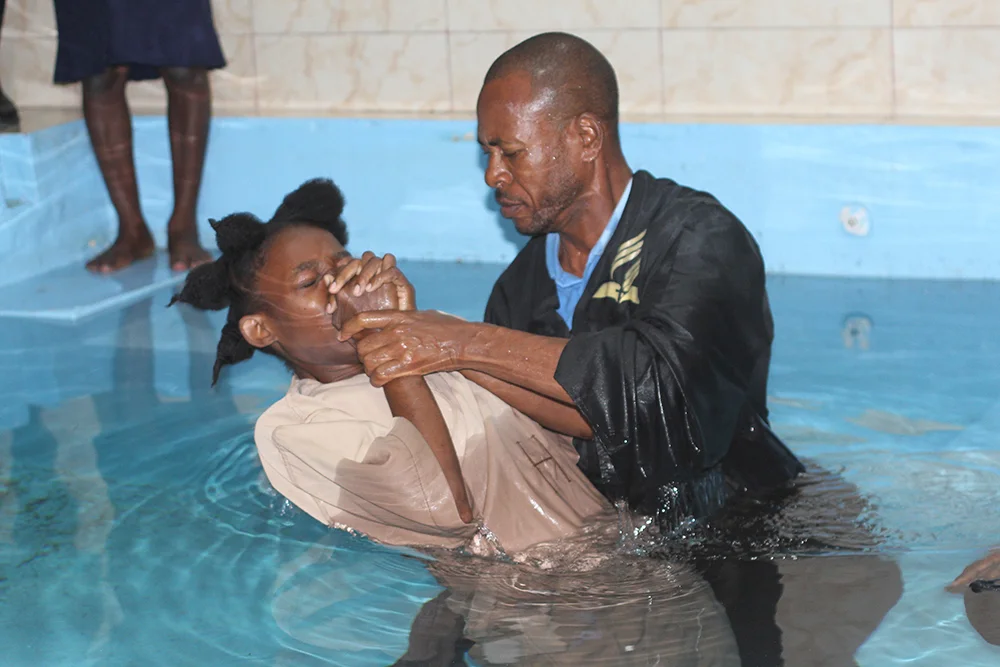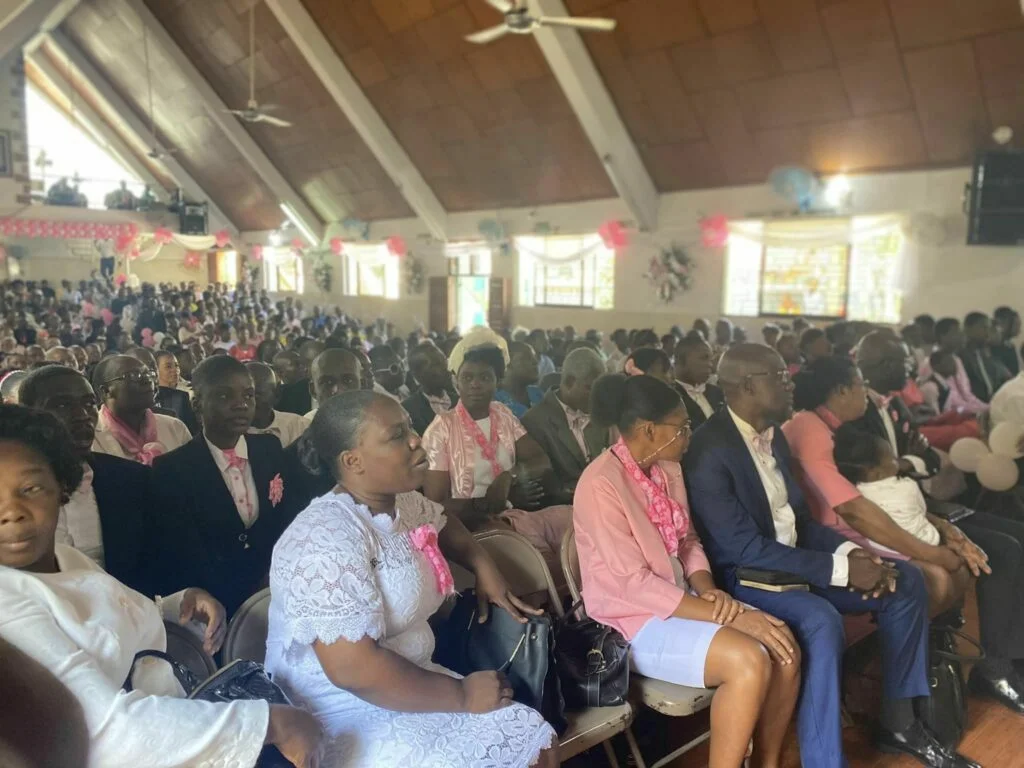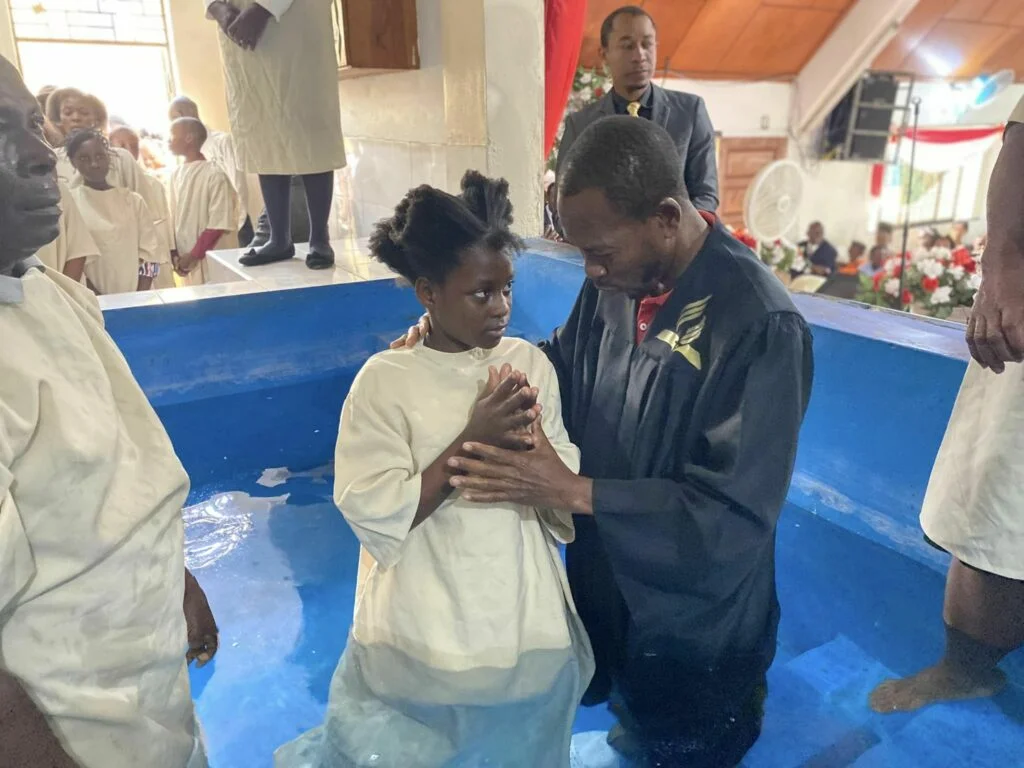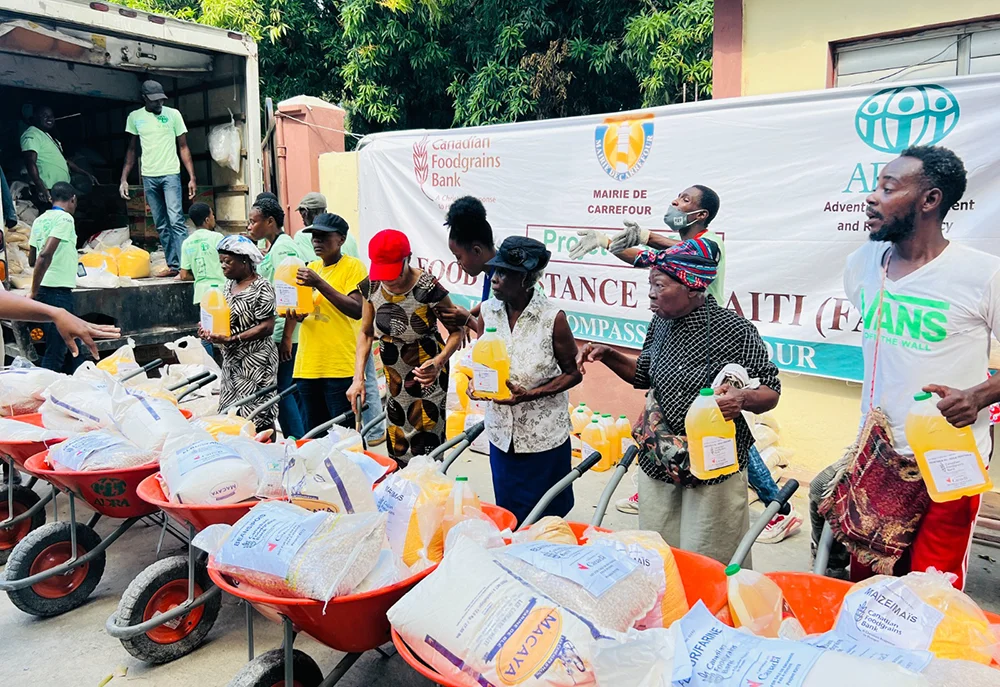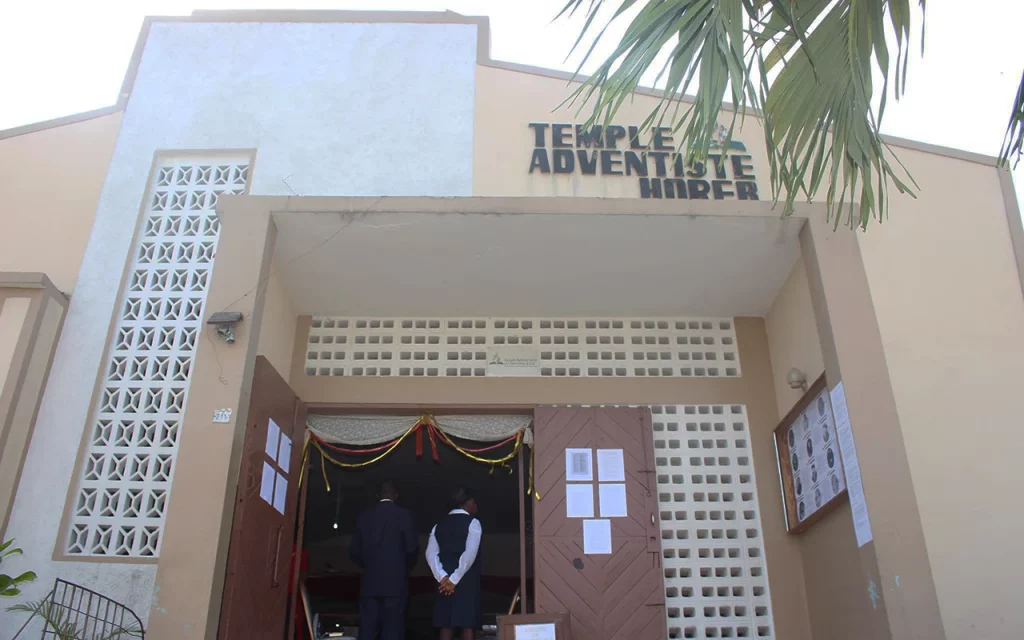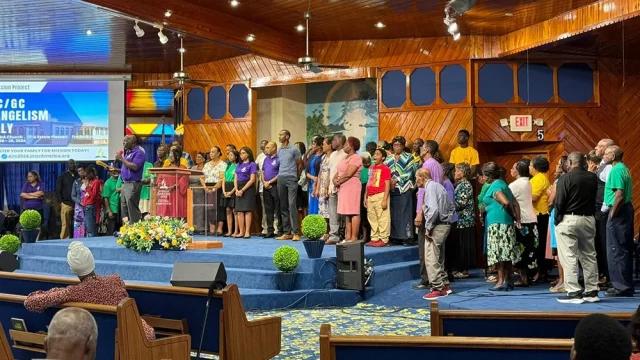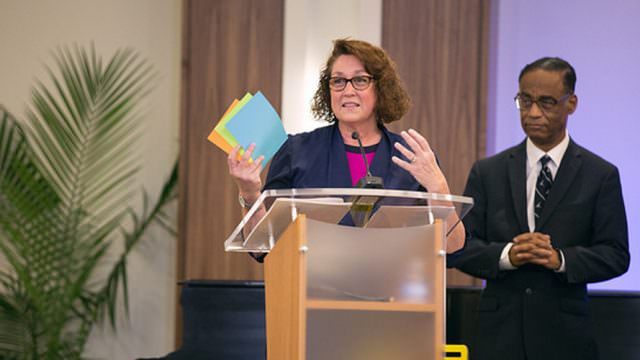Members cautiously look for ways to worship and share the gospel wherever they are.
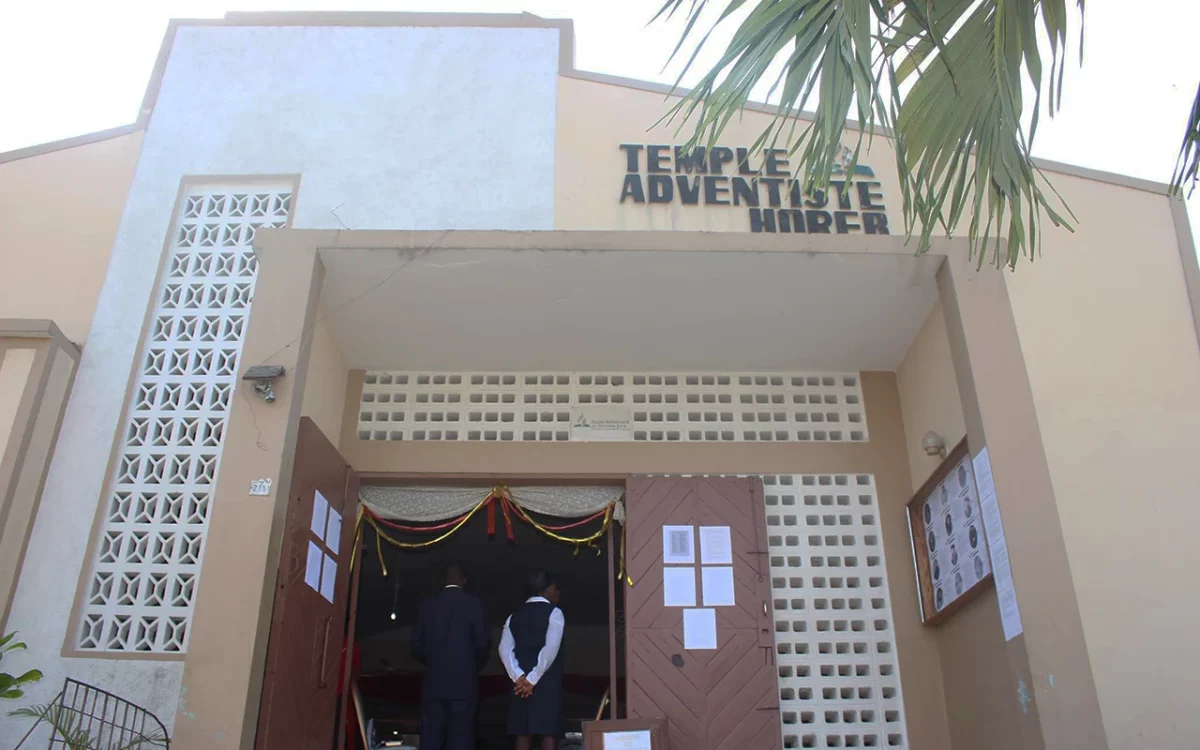
Despite the surge in gang violence in Haiti over the past months, which has significantly affected normal church operations there, recent evangelism efforts have resulted in thousands of baptisms, Adventist Church administrators said.
“The impact of this situation and the activities and operation of the church and institutions is big,” Pierre Caporal, president of the Haitian Union Mission of the Seventh-day Adventist Church, said. Four of the five local conference and mission fields have been directly affected, including the headquarter offices of the church in Delmas in downtown Port-au-Prince, Haiti.
At least 55 churches are closed, Caporal said. “The number is increasing week after week.” Many of the offices of the schools and institutions cannot operate fully. “The personnel of the union office, for instance, continues to work in three different locations,” he said.
Caporal and other leaders work from their homes or other nearby locations when it is possible. They meet on the Zoom video conference platform and talk over the phone to be updated on the life of church members across the territory and try to minister to their regional leaders as much as possible, he explained.
Late in January, armed men entered the campus of Adventist University of Haiti in Diquini, Carrefour, prompting officials to send their dorm students home and close the campus for nearly four weeks.
“There are more than 2,000 Adventist families displaced, including 18 pastoral families, conference administrators, and hundreds more who have lost their belongings,” Caporal explained. “I am very concerned for the safety of our church members, many of whom have left their homes and are living anywhere and everywhere,” he said. Church leaders are seeing many church members and their families fleeing in search of safety, and violence and uncertainty is part of daily life, Caporal said.
Churches that are open for Saturday (Sabbath) worship services do so for only a few hours in the early afternoon to allow enough time for members to return home before sundown. Others meet in sheds, homes, rented spaces, or outdoors. Others watch church services online or tune into Radio Esperance, the church’s radio station.
Some of the largest Adventist churches, with more than 800 members, like Auditorium de la Bible, Temple No. 1, and Eben-Ezer — which had always held two services each Sabbath — have closed their doors. They are the closest to the downtown area near the national palace, where armed conflicts are a daily occurrence, church leaders said.
Moving even short distances from one place to another is not safe, Caporal said.
Amid the violence and challenges around, God continues to watch over His people, he said.
“We see God’s mercies every day on behalf of the church and His people,” he said. The church has seen an unprecedented number of people getting baptized. More than 4,000 have been baptized since the start of the year. Some places are more favorable than others where the church can minister and members bring their friends and neighbors to learn more about the gospel. The 172 churches and 186 companies in the northern part of the island nation are able to meet regularly every week.
All in all, the passion of the gospel is still very present in the hearts of church members, Caporal said. From April 3 to 6, the church began four days of fasting and prayer for God’s protection for His people and the country.
“The days ahead of us continue to be worrisome, but relying on God is something we will continue to do,” Caporal said.
The Adventist Development and Relief Agency (ADRA) in Haiti has been assisting thousands of displaced families with food and necessities across critical communities in the country for several months now. ADRA International and ADRA Inter-America are providing educational programs and supplies for children in several communities for the next two months.
David Poloche, ADRA director of the Inter-American Division (IAD), said that a special fundraising campaign among regional Adventist Laymen’s Services and Industries (ASi) chapters throughout the territory will benefit displaced Adventist families in Haiti.
“We want to help church members go back home to their provinces when it will be possible to be relocated and help them with food and basic needs,” Caporal said.
More than 500,000 church members are spread out over the five conferences and missions in Haiti, which oversee 1,230 churches and congregations. The union mission operates a hospital, several clinics, a university, and dozens of primary and secondary schools.
The original version of this story was posted on the Inter-American Division news site. Jean Carmy Felixon contributed information for this article.


